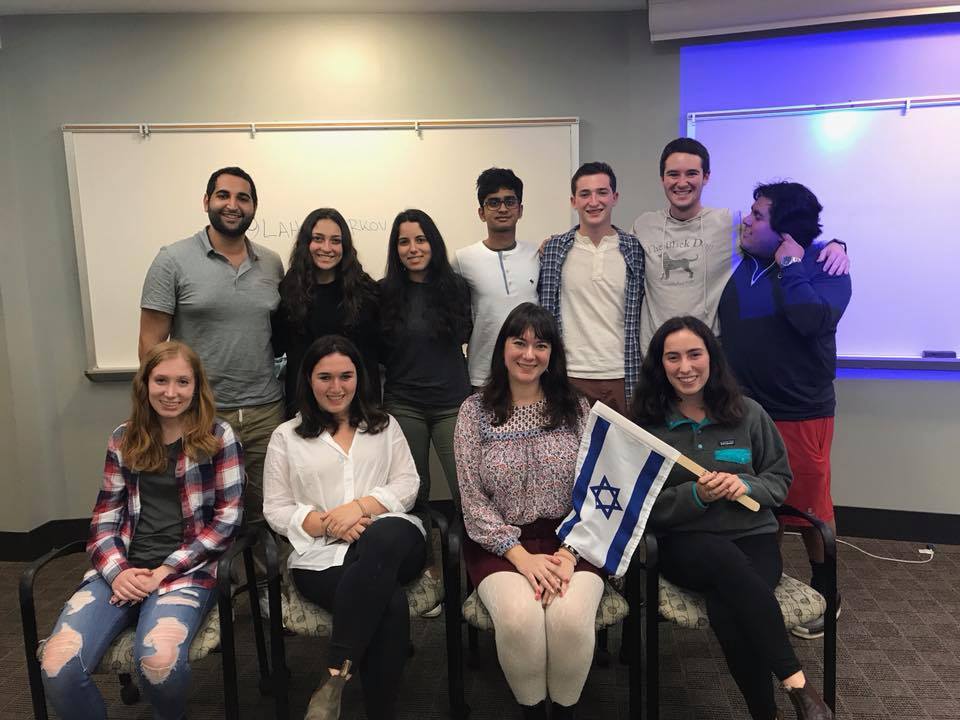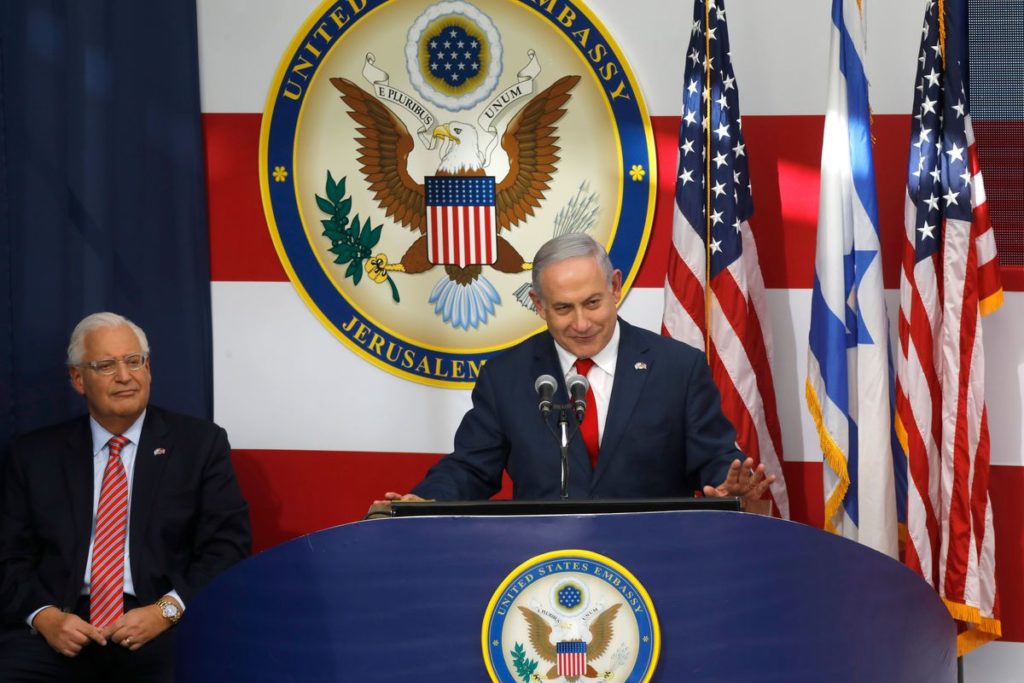Lahav Harkov speaks at Emory University at CAMERA-sponsored event
Lahav Harkov, senior contributing editor of The Jerusalem Post, discussed Israeli politics, the United States-Israel relationship and the Israeli governance structure to the Emory-Israel Public Affairs Committee (EIPAC) on Nov. 7. About 20 students attended the event in Candler Library.
When asked about the increased polarization in dialogue about Israel in the U.S., Harkov said much of the extreme rhetoric concerning Israel is false.
“Israel is not a perfect country, but a lot of the extreme attacks on Israel are just fantasy,” Harkov said.
Still, Harkov emphasized that she believes in free speech. She did not agree with Poland’s decision to outlaw references to “Polish death camps” and to make it illegal to accuse Poland of being complicit in crimes committed while they were occupied by Nazi Germany during World War II.

“I don’t like the idea of speech laws,” she said.
Harkov said she was shocked that French President Emmanuel Macron praised Philippe Petain, a French general who collaborated with Nazis during World War II to send Jewish people to concentration camps.
“It blows my mind,” Harkov said.
Moving onto another world leader, Harkov said Israeli left-wing parties praised President Donald J. Trump’s December 2017 decision to move the U.S. Embassy in Tel Aviv to Jerusalem. The move was made in accordance with Trump’s decision for the U.S. to recognize Jerusalem as the capital of Israel, which was met with protests in Gaza. The U.S. previously refused to recognize Jerusalem as Israel’s capital, saying that Jerusalem should be the subject of settlement negotiations between Israel and Palestine. The European Union subsequently voiced its commitment to a Palestinian State, where East Jerusalem would be its capital.
Trump is well-supported in Israel, Harkov said.
“When [Israeli citizens] think about Trump, they think about him being the first president to recognize Jerusalem as Israel’s capital,” Harkov said.
Harkov added that controversial issues in the U.S., including the confirmation of Supreme Court Justice Brett Kavanaugh, are often just “blips on [Israeli citizens’] radar.”

David Shainberg (22C), chairman of EIPAC’s Jewish Outreach Committee, said the event sought to educate Emory students on Israel, especially in light of the “increasing polarization” of Americans’ discussions of Israel, adding that he personally felt the event was very educational.
“It was enjoyable to learn about Israeli politics, having grown up in the U.S.,” Shainberg said.
Ben Levitt (22C) said that he found the event unique, and added that he enjoyed listening to Harkov explain aspects of the Israeli political system.
“It’s not every day you get to hear from someone like her,” Levitt said.

